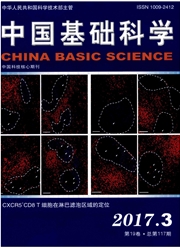

 中文摘要:
中文摘要:
植物病害严重影响农作物的产量和品质,是危及我国粮食安全的重大祸患,在防控过程中发生的农药滥用则危害食品安全。发展绿色、高产和精准的抗病新策略、培育推广作物抗病新品种是解决技术障碍的根本途径,而这方面工作的有效开展依赖于在植物免疫机制基础理论和抗病基因系统发掘方面做出重大突破。通过对模式植物拟南芥免疫机制的研究,本领域在理论体系和研究技术等方面均取得了重要突破。近年来,以水稻、小麦等作物为模式的抗病机制研究,直接为作物抗病分子育种提供了重要支撑,有力地推动了基础研究成果向实际应用的转化速度。面向学科基础前沿和抗病育种中的关键问题组织重大项目研究,将会为我国农业可持续发展和保障“舌尖上的安全”做出卓越贡献。
 英文摘要:
英文摘要:
Plant diseases caused by pathogens greatly de-crease productivity and quality of all crops, therefore seriously threaten the food supply and security world-wide. The most efficient, economic and environment-friendly solution is to breed for and grow new elite crop varieties with high performance of disease resistance. To achieve this, it is crucial to investigate and recognize the molecular and biochemical mechanisms that control plant innate immune responses, and identify resistance genes that can be used in crop breeding. In the past two decades,remarkableresearch progress has been achieved on the plant innate immunitymachinery that consists of PAMP-triggered immunity ( PTI) , effector-triggered im-munity ( ETI ) , and epigenetic regulatory cascades, based on the extensive study using the model plant Ara-bidopsis. On the other hand, recent studies on the real crops including rice, wheat and vegetable plants provide direct knowledge that drives translational researches in improving crop disease resistance. To support these aca-demic activities aimed to solve agricultural problems, planning of critical research projects on plant immunity and crop design breeding for disease resistance will cer-tainly promote agricultural science and technology in China.
 同期刊论文项目
同期刊论文项目
 同项目期刊论文
同项目期刊论文
 期刊信息
期刊信息
